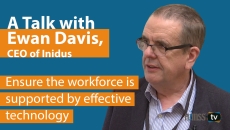Workforce
AI is on the verge of being de-risked, so the market is poised to flourish as caregivers look to ramp up their patient care efforts.
The nursing shortage has negatively affected workloads for 88 percent of nurses in 2018, up significantly from 62 percent in 2016.
Edward Klatt, a pathology expert at Mercer University School of Medicine says system leaders must be all in on pinpointing and promoting better coping skills.
About two-thirds of millennials in revenue cycle jobs are satisfied with their roles, though many said they would consider other career opportunities.
Employment in the healthcare industry is expected to grow about 18 percent over the next eight years, and foreign-born workers will likely help fill the gap.
Jefferson Health’s Robert Neff said that after breaking through that barrier hiring executives should focus on training and building a team with appropriate experience.
Common causes of EHR-related stress include too little time for documentation, time spent at home managing records and tricky user interfaces.
Marc Harrison said the escalation process, which includes daily huddles with all levels of staff, has provided operational clarity, improved safety.
Ewan Davis, CEO, Inidus, says that patient-centered care is important, but we need to also focus on arming healthcare workers with the kind of technology that makes their jobs easier. He also shares his predictions and hopes for the future of the NHS.
The spike in physician jobs is outpacing the strong economy, and that means it's time for hospitals to prepare for even fewer doctors to choose from.
